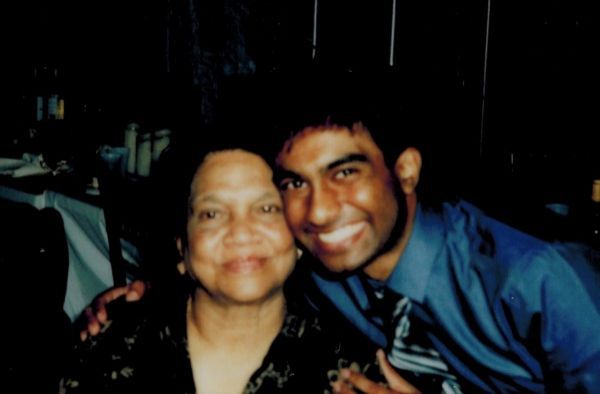
Getting diagnosed with PSC as a minor when you’re living under your parents’ roof is both a blessing and a curse. I was close to my family for the first couple years of my diagnosis and they provided unconditional support. My mom, a physician herself, would even monitor my health closer than me. However, in many ways, this made the transition to college a little tougher. When I decided to go to Rice University in Houston, I realized I was going to be moving to a whole different city that was a four-hour drive away from my home in Dallas. I could no longer rely on my mom to answer all the questions at my doctor’s appointments. I had to grow up and understand my own situation.
In fact, one of the first things my new hepatologist at Houston Methodist reinforced to me was that I would have to be responsible for my own health and understand my test results. Initially, I was hesitant since I had trusted my mom up to this point to take care of me – she knew what she was doing and this new situation seemed surreal to me. However, a pair of recent events changed how I approached my health.
In the fall of my freshman year, I caught pneumonia. At first, I was coughing just a little bit, but eventually the coughing got so bad that I was unable to sleep at night. The next day I checked into a health clinic to get an X-ray and they found that I had pneumonia not in just one lung, but both of them. I was admitted to the hospital immediately and my parents drove down from Dallas because they were worried. I stayed there for several days while they treated me with antibiotics and all kinds of medicines as I healed up and got better.
A big thing for PSC patients to recognize when transitioning to college is the large number of pathogens from different areas around the country that are going to be brought into one place as a result of a large number of adolescents living in a dorm. In fact, my roommate had been coughing constantly for a few weeks before I got sick. I was also taking a large dose of prednisone, leading me to be more susceptible to infectious diseases like pneumonia due to my weakened immune system. I believe what influenced my health the most was the amount of sleep I was getting. When I first went to college, I was staying up really late, sometimes as late as 3am or 4am, and also getting up pretty early (like 8:30-9AM) to go to class. As a result, I wasn’t getting enough sleep and the factors added up for me to catch pneumonia.
Therefore, some advice I would give to PSC patients who are transitioning to college is to make sure that you get enough sleep and to plan your classes well. Sometimes you’re still going to be staying up late (till 3 or 4 AM), but try to ensure that you have later classes (maybe 10 or 11am) if that is the case. You should not be consistently going to bed at this time, however, because the lack of sleep will take a toll on your health.
In the spring of my freshman year, I was admitted again to the hospital when they found that I had stones in my bile ducts. I was actually preparing to go home for spring break when I started having this sharp pain in my stomach. It was unbearable and I was forced to stay in my bed in the hours leading up to my flight. The only way I was able to get through the drive to the airport and flight to Dallas was by sleeping since I didn’t feel any pain while I slept. As soon as I arrived home, my parents took me to a clinic and they checked for appendicitis, which wasn’t there. I was then taken to the emergency room where I had to wait quite a while in pain before I was admitted. They did an MRCP and found that I had stones in my bile ducts. Once I was in the hospital, they treated me really well and conducted an ERCP to remove the stones. I started feeling a lot better after this; the pain disappeared and I didn’t miss any school at all.
My advice for the transition to college is to be aware of the situation you are in and monitor how frequently you itch, whether you have yellowish eyes/skin, and other symptoms of PSC as this can be a warning sign. These kinds of events are unpredictable due to the nature of PSC, but being able to catch it before it gets too serious can save you a lot of time and trouble.
Currently, I am doing fine in my sophomore year at Rice. I’m proud to say that I haven’t gone to the hospital yet. (Knock on wood.) In fact, I did research on PSC at a lab in the UK this summer and learned a lot more about my condition through the literature I read.
If you have PSC and you’re transitioning to college from high school, there are several things you need to be aware of going in. The beginning of your freshman year will require a lot of time to establish relationships with new specialists (if you’re living in a new city), adjust to college life, get involved with new activities, and decide what you’re passionate about and want to major in. Be sure that you are not putting too much stress on yourself and that you get enough sleep so your immune system can fight off potential diseases. Also, be sure to alert your professors of your situation as a backup in case anything happens. They are usually very understanding of your needs. Finally, listen to your body and if you seem to be itching more than usual or feel a little bit different, then get yourself checked out – it’s always better to be safe than sorry.
If you have any questions about the transition to college, feel free to reach out to me in the comments or via email at contactus@pscpartners.org!





